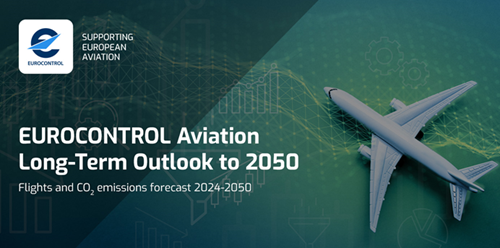EUROCONTROL's Vision for Sustainable Aviation Growth in Europe
Key Ideas
- EUROCONTROL forecasts a 52% increase in flights by 2050, aiming for net-zero CO2 emissions by then through Sustainable Aviation Fuels, fleet upgrades, and infrastructure modernization.
- The aviation industry recognizes the need for out-of-sector measures like market-based solutions and carbon offsetting to bridge the remaining gap to achieve net-zero emissions.
- Financial incentives and regulatory support will be crucial for the aviation sector to meet its carbon neutrality goals by 2050.
- Efforts to reduce carbon emissions will require innovations in fleet technology, operations, and Sustainable Aviation Fuels, to ensure sustainable growth in the industry.
EUROCONTROL has released its long-term flight and CO2 forecasts for the next 25 years, outlining the pathway for sustainable aviation development in Europe. Despite the short-term impact of the COVID-19 pandemic on air traffic, a 52% increase in the number of flights is expected by 2050, aiming to achieve net-zero carbon emissions by then. This ambitious goal will be pursued through the development of Sustainable Aviation Fuels (SAF), fleet and technology enhancements, and the modernization of airports and infrastructure. The industry will also require out-of-sector measures like market-based solutions and carbon offsetting to bridge the remaining emissions gap. Financial incentives and a supportive regulatory framework are deemed essential to ensure the aviation sector can meet its commitments towards carbon neutrality. Efforts to reduce carbon emissions will necessitate innovations in fleet technology, operations, and the scaling up of Sustainable Aviation Fuels production to sustainably support the industry's growth while meeting environmental objectives.
Topics
Aviation
Aviation Industry
Carbon Emissions
Climate Goals
Financial Incentives
Regulatory Framework
Infrastructure Modernization
Sustainable Aviation Fuels
Flight Forecasts
Latest News
